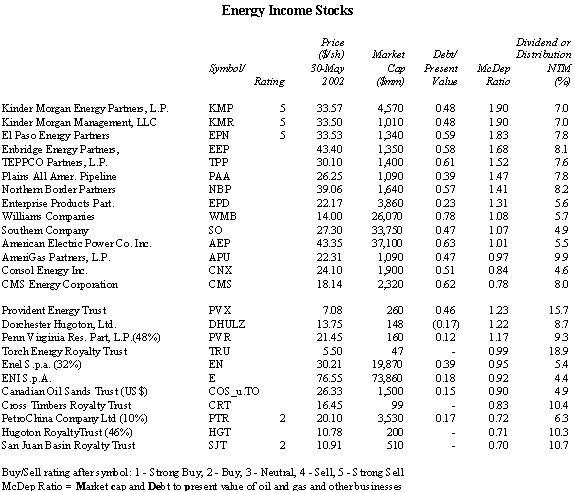June 3, 2003; Cash Cows
Long before the days of Mr. Ponzi, investors have
sought high income from their investments.
Theoretically it should not matter what is distributed if an investment
earns a decent total return in distribution and appreciation.
Practically it seems that promoters too often exploit income investors.
We have seen that happen with energy income partnerships two decades ago
and with the first wave of master limited partnerships about one decade ago.
Now we believe we are seeing flagrant abuses of trust in a new energy
income boom in what we call the “high greed gauge” master limited
partnerships.
At the same time there appears to be very little
objective research on income investments. Nearly
all of the analysis of high greed partnerships is produced by the agents who are
conflicted by their compensation from churning of assets and recycling of funds.
Worse, the deceptive partnerships are the yet unchallenged legacy of
Enron, Arthur Andersen and Vinson & Elkins.
Besides the bad stuff we have identified, there must
be more good income stuff out there. Our
coverage is expanding and we are optimistic about including more income ideas.
From our current valuation tables we extract some of the most relevant
investment parameters for stocks that distribute more than 4% of value annually
(see table).
Arbitrarily we draw a line at Provident
Energy Trust (PVX).
Since we identified that stock as relative good stuff a few weeks ago, it
has appreciated a bit and we would be careful about chasing the price.
Stocks in the upper half of the table have McDep Ratios and ratios of
debt higher than PVX and higher than we would want in our portfolio. Conversely we would be willing to consider owning stocks in
the lower half of the table to deliver more than 4% income.

Just as it is no surprise that we are already
recommending sale of three of the least desirable income stocks, we are already
recommending purchase of two of the most desirable income stocks by our
analysis. Perhaps there is little
surprise that two of the best appearing alternatives are the other two royalty
trusts we cover in detail each week, Hugoton Royalty Trust (HGT) and Cross
Timbers Royalty Trust (CRT).
The newest income idea in our coverage is Canadian
Oil Sands Trust, owner of 22% of Syncrude, the producer of Syncrude Sweet Blend
in Fort McMurray, Alberta. Unlimited
reserves are offset by somewhat high capital and operating costs along with some
environmental degradation at the source. Middle
East oil symbolizes both the project’s opportunity and its risk.
Additional capacity under construction will be completed in a few years.
Incremental volumes would add to cash flow depending on oil price and a
higher proportion of cash flow would be distributed after spending is complete.
Distributions would perhaps
double and last indefinitely. Administrative
charges are nominal. The latter
point takes on increasingly positive significance in these times of rampant
general partner greed.